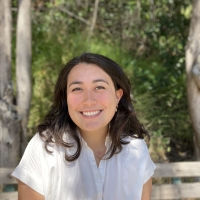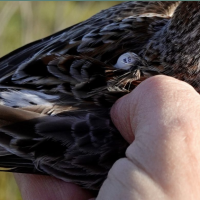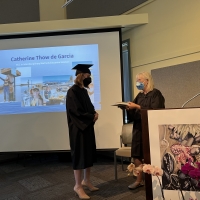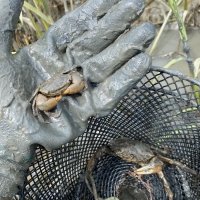The past, present, and future of environmental justice in the Bay Area: Olivia Won’s Fellowship with SF Bay NERR
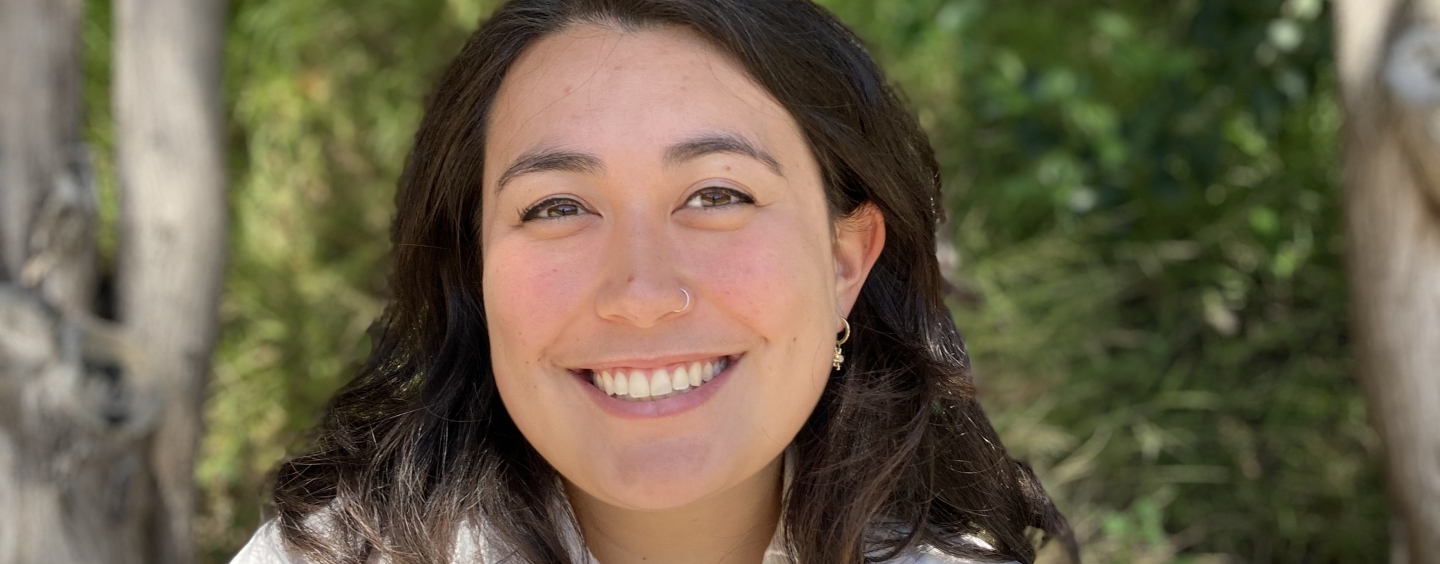
As a Margaret A. Davidson Fellow hosted by the San Francisco Bay NERR, Olivia Won (she/her) is working hard to shape an equitable future in the Bay Area through coastal adaptation planning. While pursuing her undergraduate degree at Wesleyan University, Olivia participated in the University of Washington’s Doris Duke Conservation Scholars Program. For two summers, Olivia learned about the intersection of conservation and justice through field learning across Washington State. Reflecting on the experience, Olivia noted how powerful it was to have a focus on diversity and to have a place she felt she belonged and wanted to continue working. Through the fellowship, Olivia also had the opportunity to be involved with the Elwha Revegetation Project in a remote region of Olympic National Park, where she realized how disconnected restoration often is from urban areas that have a need for social and environmental justice.
The Past
“Green space is community space,” Olivia reflects. Growing up, she was amazed watching the progression of tidal restoration at Lake Merritt in her hometown of Oakland, CA. As a kid, Olivia volunteered with cleanups around Lake Merritt and was stunned by the positive impacts of restoration around the lake. She also witnessed how this greening contributed to gentrification processes, observing firsthand how well intentioned environmental projects can yield unintended social consequences. She could not ignore the lack of consideration of social issues in coastal adaptation planning.
The Present
Olivia was excited to turn her attention back to her home in the San Francisco Bay Area as she works toward her Master of Science in the Coastal Science and Policy program at UC Santa Cruz. In recent years, California has emphasized equity and furthering justice in their environmental and climate planning goals, and Olivia wants to hold state institutions accountable. To do this, her project as a Margaret A. Davidson fellow with the San Francisco Bay NERR is looking at the distribution of shoreline adaptation projects to date across San Francisco Bay. Olivia is developing a database of all permitted restoration projects in the Bay Area to track what benefits were promised and how they relate with census statistics such as education, voting, and wealth: factors that could affect how many environmental projects are completed in a given locality. She plans to look closely at nature based multi-benefit projects to see if certain benefits have been concentrated in specific demographic areas. Analyzing trends in coastal adaptation to date will help shape equity-driven strategy going forward.
The Future
Olivia is motivated to support an equitable future to break down systems of inequality, because she believes that “the bay is for everyone”. Today’s projects can shape tomorrow’s communities. Adaptation can have wide-reaching effects for decades to come by promoting green, climate change resilient community space for all. However, without careful planning, these beneficial projects could promote further injustice by disproportionately occurring in areas where money, voters, and education promote it. Olivia wants to do everything in her power to prevent harmful outcomes. Her work will reveal how we are doing and where we need to shift our focus to shape a fair and equitable community in the Bay Area for current and future generations. Thank you, Olivia, for taking action and standing up for environmental justice!
